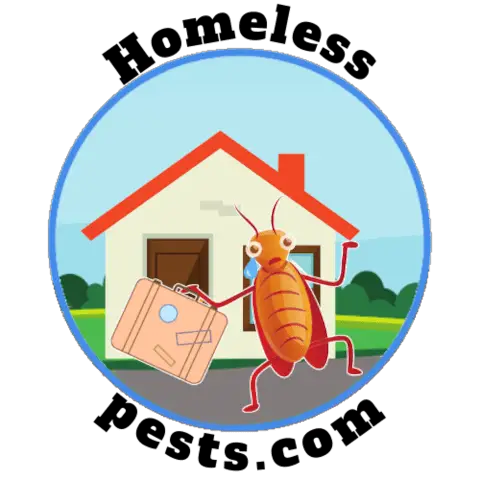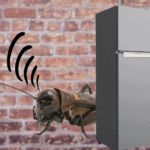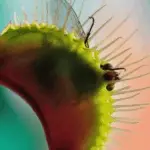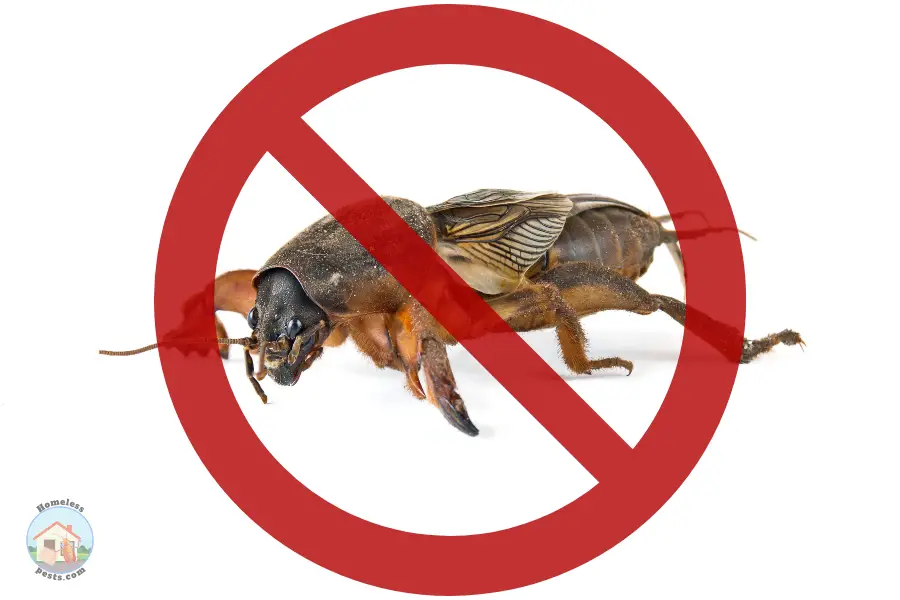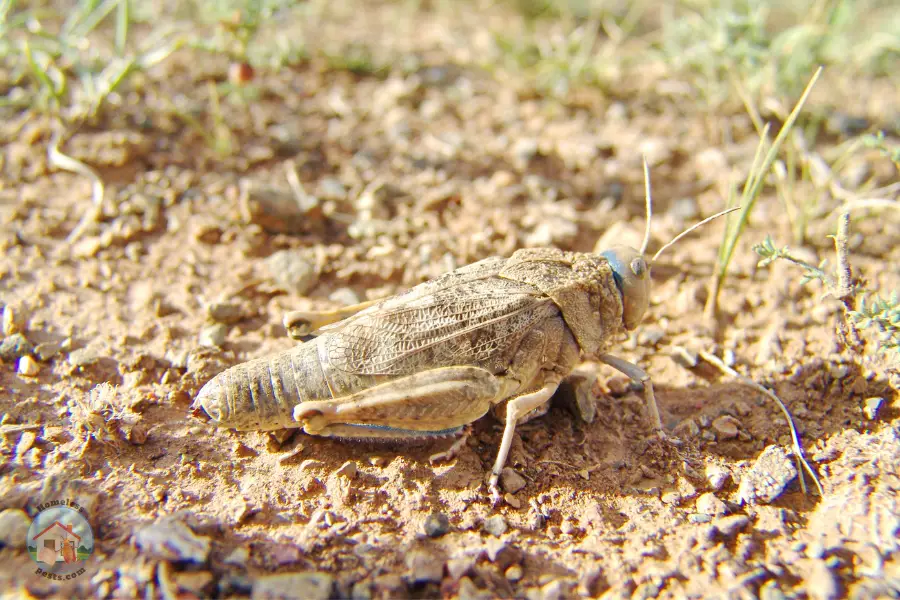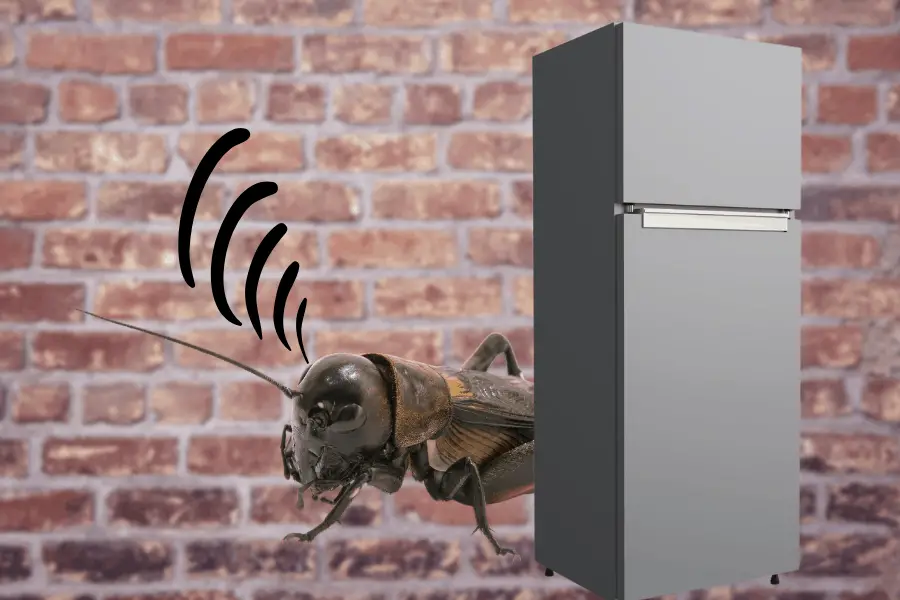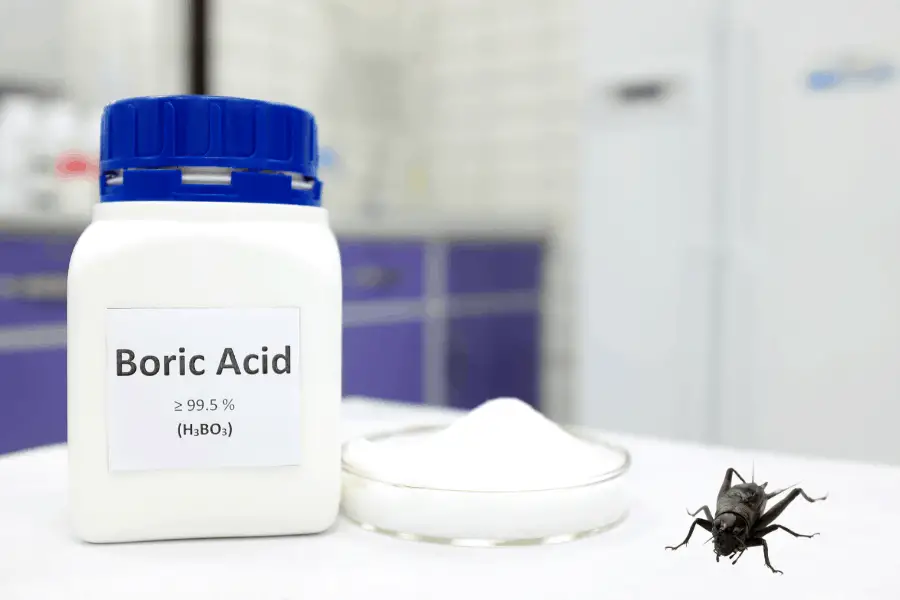
Boric acid is a white powder that can be found at most hardware stores. It has many uses, the most common being for pest control, such as getting rid of ants or roaches. Some people use it to kill spiders and wasps too. But will boric acid also work on crickets? Is it safe to have around pets and children?
I plan to answer all these questions and more in this blog post!
Boric acid is a caustic chemical that is very effective against crickets as well as other insects. Once ingested, usually through self-grooming, boric acid targets the nervous and digestive systems. Death normally occurs in a few hours to a few days depending on the level of exposure to boric acid.
Although boric acid is an incredibly useful pesticide, its prowess really relies on you placing it in the right location so that crickets, and other pests such as roaches, will wander into it.
So, If you want to learn how to really get rid of your crickets with boric acid, I recommend you read the rest of this article.
What is boric acid?
Boric acid is a chemical that has been used for decades as an effective roach killer. In fact, it also kills other pests such as ants and crickets – but the trick to using boric acid is in the right location as it relies on contact with the crickets, rather than inhaling it like other poisons.
Boric acid, not actually an acid, is made from the element boron and is the active ingredient in many pesticides.
Boric acid was developed as a pesticide back in 1918 by combining two naturally occurring minerals, sulfuric acid, and boric oxide. Boraxo soap powder contains this very same chemical for use on clothing – but it will not harm crickets or other insects if they are exposed to it.

How does boric acid work to get rid of crickets?
Boric acid needs to get on the body of the crickets in order for it to work. This is why you need to place it near known thoroughfares of your invading cricket community.
Once it gets on the body of pests like crickets and cockroaches, it gets absorbed by their exoskeleton and into the body or they ingest it while cleaning themselves.
Boric acid can be used to kill cockroaches, ants, silverfish or other small bugs that invade your home. It is non-toxic for humans and has an extremely low toxicity level for pets as well if ingested.
Boric acid will then affect their nervous and digestive systems. This usually leads to death in about a day.
Where can you find boric acid?
You can buy boric acid at most grocery stores. You can also find it online or at your local hardware store if you are looking to buy in bulk quantities.
You can also pick up raw boric acid or as part of a specialized pest bait trap on Amazon, check out these suggestions:
If you don’t have boric acid, try mixing sugar with Borax powder and enough water to make a paste-like mixture that is moist but not wet like a dough ball.
Apply this solution to the areas in your home where you’ve seen crickets.
Where should you sprinkle boric acid in your home?
Boric acid is most effective when you sprinkle it in the areas where crickets like to hang out. Crickets prefer dark and moist places that are close to food sources, so they’ll likely be found near them or near hiding spots such as under sinks, in cabinets, behind furniture, etc. If you have a chirpy cricket stuck behind your fridge, then sprinkle some boric acid under it.
You should always create a perimeter around the home as well, and boric acid can be great assuming that you don’t have pets. If you do have pets, then op for a bait trap that has boric acid inside a protective case that is only accessible to insects.
Is there a downside to using boric acid for cricket control?
As with other poisons, such as common rodenticides for rodents, the major drawback is that you can’t verify that it has worked. It is impossible to know how many crickets, if any at all, are left in your home.
You will just have to wait and see if it works. There is a chance that boric acid won’t be effective if you haven’t put it in the optimum location. That’s why using live or sticky traps can be better as you can tell sooner if it is working.
The other drawback to boric acid is that it can be toxic and harmful if ingested. This isn’t a major concern when using the product as recommended for insect control or when you are applying it in dry form, but care should be taken around children who might come into contact with any residue.
We need to make sure we tell to keep clear, or just not take the risk and use another product.
Getting rid of crickets in your home or garden without chemicals or pesticides
If you aren’t keen on using a pesticide to kill off your otherwise harmless cricket guests, you can use one of these methods instead.
Ultrasonic pest repeller
One of the more popular ways to get rid of crickets is by using an ultrasonic pest repeller. These devices emit high-pitched sounds that are so unpleasant for crickets that it will stop them from entering your home, but they’re not too much bother for people who cannot hear the ultrasonic frequency.
You can read more about that in my full article about ultrasonic pest repellers for crickets here.
Essential oils
The four essential oils that seem to ward off crickets best; rosemary, thyme, sage, and eugenol. You should place a solution of one or more of these essential oils in a spray bottle and use as needed.
The best place to spray essential oils as a pest repellent is on the bottom of a door’s threshold, or along walls and windowsills.
Live traps
If you don’t have a huge infestation, you might want to use live traps to catch the crickets. This way, you can release them somewhere far away with a lot of other crickets.
Live traps work by luring the insect in and closing around it, which is why they’re also sometimes called “coffin” or “body” traps. The inside of the trap might be baited with food to encourage insects into entering, but actually one of the best baits for crickets seems to be beer.
Removing moisture
Undoubtedly the reason why you have crickets in your home is because of the water available there. Moisture from leaks or condensation is exactly what crickets are searching for.
You can use a dehumidifier to suck the moisture out of your room or you can find another dry place, like an empty crawl space. You might also want to get some air conditioning and/or open windows in order to reduce the humidity levels.
Best DIY Cricket products
As they cause little damage to your home you may not want to call an exterminator to get rid of your crickets. Here are some of my suggestions for what you need to do the job yourself. You can buy all of these products in your local hardware store, or you can follow the provided links to buy them on Amazon.
Catchmaster Cricket XL

Here is the link to this product on Amazon.
Ortho Home Defense Max Indoor Insect Barrier

Here is the link to this product on Amazon.
Premium – 99% Pure Boric Acid Powder

Here is the link to this product on Amazon.
Delta Dust Multi Use Pest Control Insecticide

Here is the link to this product on Amazon.
Diaotec Ultrasonic Pest Repeller

Here is the link to this product on Amazon.
When to call a professional exterminator for crickets
You should call an exterminator if you see huge numbers of insects, live or dead.
The population of pests in your home may be so high that they will always manage to find a way back even after the pest infestation is eliminated with DIY methods.
In this case, it’s best to call and hire a professional service – one that offers a guarantee of complete extermination and, if necessary, prevention services.
The high population may also indicate an infestation outside the home. It’s important to make sure all entry points are sealed so pests can’t enter your living space or get access to food sources in order for them to be eliminated with DIY methods.
You should consult with a pest control professional to identify the infestation’s source and find out how it can be eliminated.
If you have external pests, there are many ways that an exterminator might approach your extermination needs. The most commonly used solutions involve pesticides.
These products come in several different types – they may act as poisons or repellents or even both. Some of the most popular pesticides for household use include, you’ve guessed it, boric acid,

